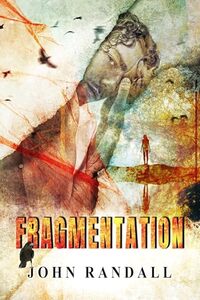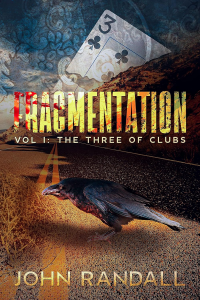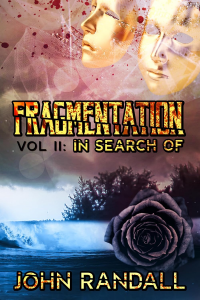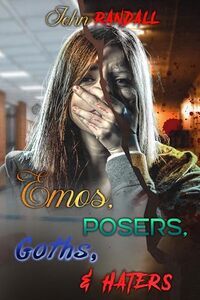John Randall Interview Published on: 04, Nov 2024
 Growing up in Chicago, what early experiences or influences sparked your fascination with creative writing?
Growing up in Chicago, what early experiences or influences sparked your fascination with creative writing?
My love of writing began when I was a youngster. I was writing short stories in kindergarten. At the time, choose-your-own adventures were such a craze. I told myself one day that I would write a similar book. Harsh Winters, coming out next year, will have multiple endings for a reader to choose from.
How did your time at Columbia College help shape your approach to storytelling?During college, I took a few creative writing classes, a screenwriting class, and numerous electives on film theory. The ability to create something from scratch excited me beyond belief. I also read a lot of books. I was at the bookstore each week, ready to devour the latest releases. I wrote a few screenplays that were not good and even a full-length novel that is still collecting dust.
You have a strong interest in history, psychology, and political dramas. How do these themes influence your writing, especially in the Fragmentation series?I have loved all three since high school. US history for the ups and downs of the United States. Minoring in Psychology in college, I was always fascinated with abnormal topics. Political dramas are intriguing since they can incorporate history and psychology. The Fragmentation series, at some point, may contain all three.
What drew you to slow-burn stories, and how do you incorporate this style into your writing process?The ability for a reader to develop an emotional connection to character(s). The tension slowly escalates until it bursts open. Conversely, some readers prefer to avoid this type of story and want resolutions immediately. There is understanding, though, of some authors who may overdo it with details. It is about finding the right balance to make the book a page-turner.
How do you see the genre of comedy as a tool for advancing plot devices in your stories?In Vol I of the Fragmentation series, I used it to hide characters. One of the interesting things about creating eccentric and off-the-wall characters is hiding their true motivations. Suppose an author introduces a good number of characters in a story with comedy. In that case, the ability is there for red herrings and to misdirect readers’ expectations.
Symbolism and metaphors are essential elements of your writing. Can you share your approach to amplifying them in your work?My books are usually unconventional narratives. The ability to use metaphors and symbolism to further engage a reader, making the story more interactive. I have loved using metaphors and symbolism since high school. They are amazing devices to replace repetitive story beats or even dialogue. In Vol II of the Fragmentation series, both were used to the extreme to help tell a story visually yet provide clues and breadcrumbs to what may be going on in the story.
In the Fragmentation series, you explore themes of redemption and dealing with repressed events. What inspired you to delve into these complex psychological themes?In my senior year of high school, I read a literary classic called “Crime and Punishment.” It made me fall in love with literature. The idea is that a detective wants the main character to confess. As the reader slowly is eaten away with guilt over the crime, it is fascinating. I told myself I would write my own variation of that story one day. Vol II of the Fragmentation series shows the main character Rodrigo’s psyche unable to handle the guilt any longer, and it leads to a tailspin into mental health issues.
Your books often explore how one's past can resurface in unexpected ways. How do you personally relate to this theme, if at all?I have friends who still struggle with mental health. At times, so do I with anxiety. It could be PTSD, OCD, or even a social situation, which causes a fight-or-flight response for some. It could be based on a memory, running into someone who looks like whoever caused them trauma. In the Fragmentation series, Rodrigo’s guilt is so deep-seated that when his past comes a calling, all that repression and fragmented memories come back to the surface with a vengeance.
Can you tell us about your journey into the legal technology field and how it complements or contrasts with your writing career?I kind of fell into it and was intrigued by the ever-evolving technology in the legal space. There are so many amazing people in the world of electronic discovery and its parallels.
Initially, my response would have been one of contrast. However, the more I think of this question, the more goosebumps occur. Writing these complex and character-driven stories was impossible when I was younger. It is a testament to the complexity of matters I have worked on in this space, where the motto has to be just figure it out. Problem-solving skills are a benefit when writing these types of stories.
What inspired you to write a standalone YA story, "Emos, Posers, Goths, & Haters," and what message do you hope to convey to your readers?Emos (for short) was a long, winding road. Initially, I had hoped to get permission to use “Mean Girls” as a theme wedding for the bridezilla in my Fragmentation series. Not believing I could secure those rights; I decided to write my own “Mean Girls” knockoff.
At one time, it would be nothing more than a short story as a companion piece to Fragmentation Vol II. Yet, something kept on eating away at me. There was an opportunity here to flesh out essential themes on identity, social exclusion, and the ramifications of bullying. So, I decided to rewrite this story from scratch. Above all else, I want this story to resonate emotionally with readers. I would like to see serious discussions in high school on the effects of bullying. Bullying classes should start as early as the fourth grade and be mandatory each year when the student moves to a new grade.
How do you balance writing standalone books like your latest with continuing a series like Fragmentation?When the decision was made to rewrite Emos, it would be standalone. Little did I know that fleshing out specific characters would set the foundation for a prequel and a sequel. It will be up to the readers to make that decision.
For actual standalone books, it comes down to wanting to tell these stories rather than needing to tell them. I am driven by the ability to write something or try something original in storytelling or different takes on themes.
What challenges do you face when writing complex emotional and psychological narratives, and how do you overcome them?Do I have it in me to write these complex emotional narratives? Will a reader resonate with them? Would they understand what I was trying to do? How can I put myself in the mindset to write those chapters?
Two stand out to me. One is in Fragmentation Vol II. I watched hundreds of hours of emotional songs to get to where I needed to be for that chapter. The other is in Emos and was a bigger challenge. If that chapter was not nailed, then the book would not work. So far, advanced readers have let me know it resonates with them, which is why I write these types of stories.
Can you describe your typical writing process? Do you have any specific rituals or routines that help you get into the creative zone?Usually, it starts with writing a fleshed-out outline. Each chapter has at least a few paragraphs that relate to character development, plot points, and what details need to be in it from a foreshadowing and symbolism perspective.
The books undergo rewrite after rewrite, with the goal of adding additional details and chapters and tightening up the story. From a creative perspective, watching movies and/or TV shows helps me get into that zone.
What do you hope readers take away from your books, especially regarding the exploration of guilt, redemption, and the human psyche?Would readers relate to a character who has done horrible things in the past? Can they relate to a character at all who has guilt eaten away, where his psyche is fractured? What type of redemption would that allow? What happens if a character cannot come to terms with repressed guilt? Will it break them? Trauma affects others differently and is a central theme in my books.
When did you join AllAuthor? What has your experience been like?I joined in March of this year, and it has been fantastic. AllAuthor is an excellent resource for indie and published authors. One key feature is listing a book cover on your home page. Another feature is using a magic tool to create amazing graphics. Being on the platform increases an author's visibility.
John Randall was born in Chicago, Illinois, where his fascination with creative writing began early in life. Now working in the legal technology field, Mr. Randall has developed a love for slow-burn narratives, exploring how comedy can be used to advance plot and elevate symbolism and metaphor to new heights. In his Fragmentation series, he delves into the complexities of how our past shapes us, examining themes of redemption, repressed memories, and the psychological burden of guilt.
 Fragmentation: Special Edition
Genre: Crime Fiction, Thriller, Suspense, Mystery, Literary Fiction, Horror
Fragmentation: Special Edition
Genre: Crime Fiction, Thriller, Suspense, Mystery, Literary Fiction, Horror




